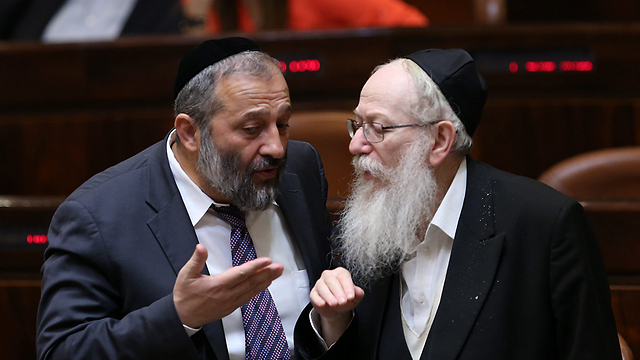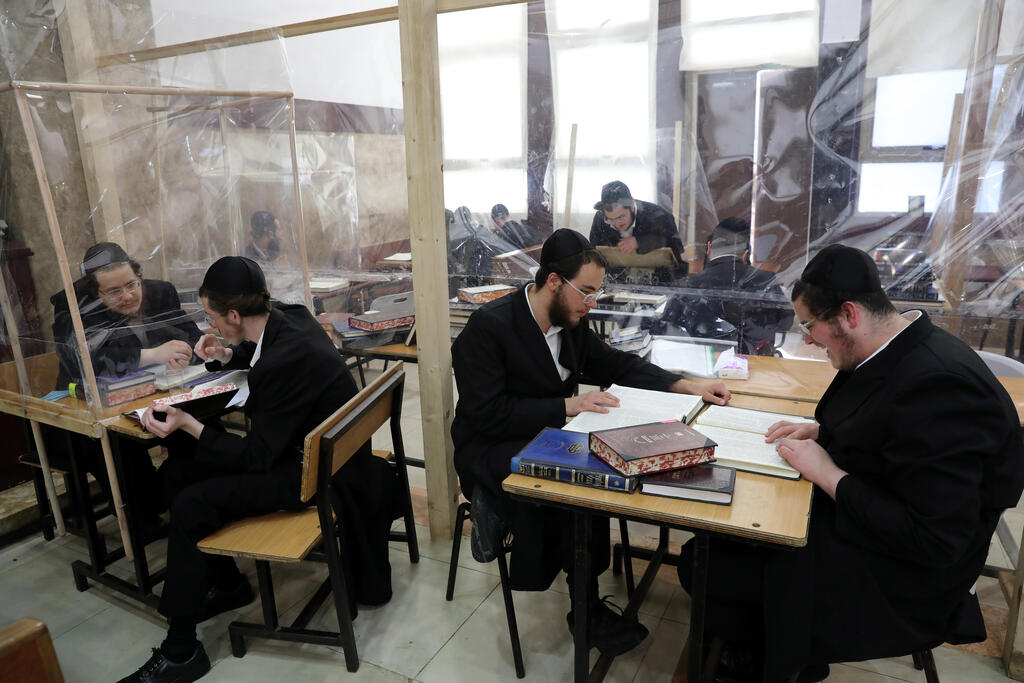Getting your Trinity Audio player ready...
Habits, certainly bad ones, are hard to change. For decades, the State of Israel has funded the choice by a significant portion of the ultra-Orthodox sector to abstain from joining the workforce.
The original sin began with the establishment of the state, when David Ben-Gurion sought to produce an elite group of Jewish scholars in the wake of the devastation of the Holocaust. But the plan degenerated very quickly, creating an entire culture reliant on public funds that was incapable of developing economic or occupational independence.
This failure has many fathers, despite there being countless opportunities to stop this train.
The significant increase in the ultra-Orthodox population has made the problem far more urgent — not just because of the cost to the state, but primarily because this habit has been passed down from generation to generation, making it firmly entrenched in the Haredi psyche and extremely difficult to root out.
Finance Minister Avigdor Liberman has decided to change policy. His first step was to announce a change in the criteria for receiving financial assistance for authorized daycare centers.
In two-parent families, only those with both parents working or engaged in professional studies can receive a state subsidy for preschool childcare. For the first time, yeshiva students are excluded from this stipend.
In the model used to date, the State of Israel has done everything to persuade a Haredi student with a young family not to enter the labor market — or alternatively to work "off the books" without reporting any income tax.
In any event, salaries among the ultra-Orthodox are low due to a lack of formal education, so it was not profitable for a man with small children to work even if his family did receive the subsidy.
Even so, to make such an announcement just one month before the start of the academic year — even if it is a welcome step — is simply indecent.
Liberman has rightly made a name for himself as the enemy of the ultra-Orthodox. When asked before the March 2021 election whether he would ever join a coalition with the ultra-Orthodox parties, he said: "I will send them to a landfill in a wheelbarrow."
It is hardly surprising therefore that the sector harbors feelings of suspicion and a desire for revenge toward him. Such hostility only further undermines the legitimacy of this important and necessary step by the finance minister.
It could have been handled far better. The minister could have decided that the move would come into effect either from the middle of the academic year or even from the start of the next one, thereby giving the impacted students a proper chance to find work.
It would send the message that in the Jewish state there is value in Torah study, and therefore its scholars would receive benefits even if it was for a limited time and only available to those who also acquire a profession.
3 View gallery


Haredi party leaders Aryeh Deri of Shas, left, and Yaakov Litzman of United Torah Judaism in the Knesset
(Photo: Alex Kolomoisky)
They could have come up with other models, which while being more complex would produce trust in the system.
But as long as treasury decrees are perceived as decrees of extermination, and do not come with the necessary explanation and outreach, opposition to them will become a mitzvah.
It will not lead to more yeshiva students joining the workforce but will instead merely create more poor families.
The system of benefits and subsidies is indeed a bad one that only harms the ultra-Orthodox.
But achieving the desired outcome means one has to be smart — not just right.



